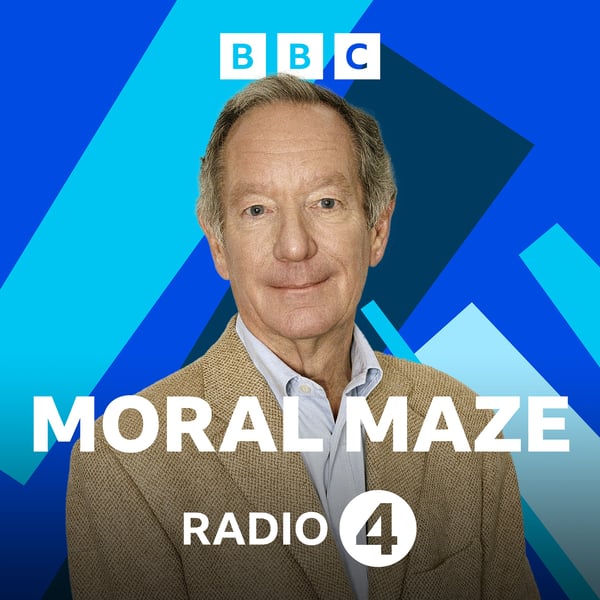The United Nations
Moral Maze
BBC
4.5 • 609 Ratings
🗓️ 22 November 2018
⏱️ 43 minutes
🧾️ Download transcript
Summary
Britain has been heavily criticised by the United Nations expert on extreme poverty and human rights, over what he describes as its “draconian” benefits sanctions. Philip Alston has taken a 12-day tour of some of the most deprived areas of the UK and he is not impressed with what he has seen. Quoting the philosopher Thomas Hobbes, he says that current government policies are condemning the most destitute to lives which are “solitary, poor, nasty, brutish and short”. Poverty campaigners are hailing Professor Alston’s intervention, while others not only dispute his politically incendiary conclusions, but are furious that he has been allowed to advance them on behalf of the United Nations. Why shouldn’t an outside organisation be allowed to investigate poverty in Britain? This calls into question the wider purpose of the UN, which rose from the ashes of the Second World War. Is it living up to its founding mandate to make the world a better, more peaceful place? Supporters praise its commitment to the welfare of all of humanity, affirmed in statements like the Universal Declaration Of Human Rights and the Sustainable Development Goals. They are happy to report that – globally – we’re winning the war on poverty and disease and we’re sending more boys and girls to school. But the UN also has its critics, who do not see it as a cohesive body with a unifying sense of moral purpose. They point out that the Security Council is deadlocked and impotent in the face of any major conflicts in which permanent members have a stake, and they see rising prosperity principally as an achievement of global capitalism. What, then, is the point of the United Nations and does it still have a moral role in the world?
Producer: Dan Tierney
Transcript
Click on a timestamp to play from that location
| 0:00.0 | You're listening to a programme from BBC Radio 4. |
| 0:03.7 | Good evening, the United Nations Special Rapporteur on Extreme Poverty and Human Rights, Professor Philip Ralston, has reported on the poorest and most benighted countries in the world, but seems to have saved his harshest criticism for us. |
| 0:16.1 | We're a disgrace, he says. |
| 0:17.7 | The poverty in our country, Professor Rolson said last week, was a social calamity and an economic disaster. |
| 0:23.6 | And he had no doubt who was to blame. The government's approach is punitive, mean-spirited and often callous. |
| 0:29.6 | Coming from the UN's leading expert on these issues, whose other recent reports have been generally approving of China, and even had some good things to say about |
| 0:38.0 | that dirt poor bastion of modern slavery, Mauritania, made it particularly incendiary. |
| 0:43.4 | The government called it inappropriate and chose to regard it as politically motivated. |
| 0:48.5 | A lot of issues here. Have we really turned our backs on the poor? |
| 0:52.3 | What is poverty? 14 million people in Britain, |
| 0:55.3 | a fifth of the population are poor, according to the figures the professor uses. |
| 1:00.0 | But they count those who are proportionately less well off than the average, |
| 1:03.9 | a relative calculation of inequality, rather than the absolute measure of destitution, |
| 1:08.3 | more often used about third world countries. |
| 1:16.2 | And there's also a wider debate about the UN itself set up generations ago now to make the world a better and safer place, but so often deadlocked on big issues by competing power blocks, |
| 1:21.7 | and its critics say, increasingly politicised. What's the point of the UN and does it still have a moral purpose? |
| 1:29.3 | Our moral maze tonight. The panel, Melanie Phillips, social commentator on the Times, |
| 1:33.1 | the former Conservative Cabinet Minister Michael Portillo, Matthew Taylor, Chief Executive of the RSA |
| 1:38.0 | and the priest and polemicist Giles Fraser. Melanie Phillips, is this a picture of Britain that you recognise? |
| 1:44.0 | No, we have poverty in Britain and it is a serious problem. But I think this report has used a |
| 1:49.2 | definition of poverty, which exaggerates it in a quite disgraceful way, in order to make a political |
| 1:54.2 | attack on the policies of this country, which the UN has absolutely no business to do. It's |
... |
Please login to see the full transcript.
Disclaimer: The podcast and artwork embedded on this page are from BBC, and are the property of its owner and not affiliated with or endorsed by Tapesearch.
Generated transcripts are the property of BBC and are distributed freely under the Fair Use doctrine. Transcripts generated by Tapesearch are not guaranteed to be accurate.
Copyright © Tapesearch 2025.

